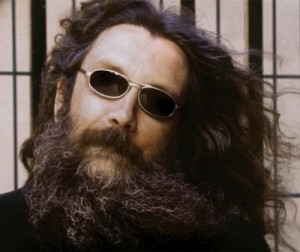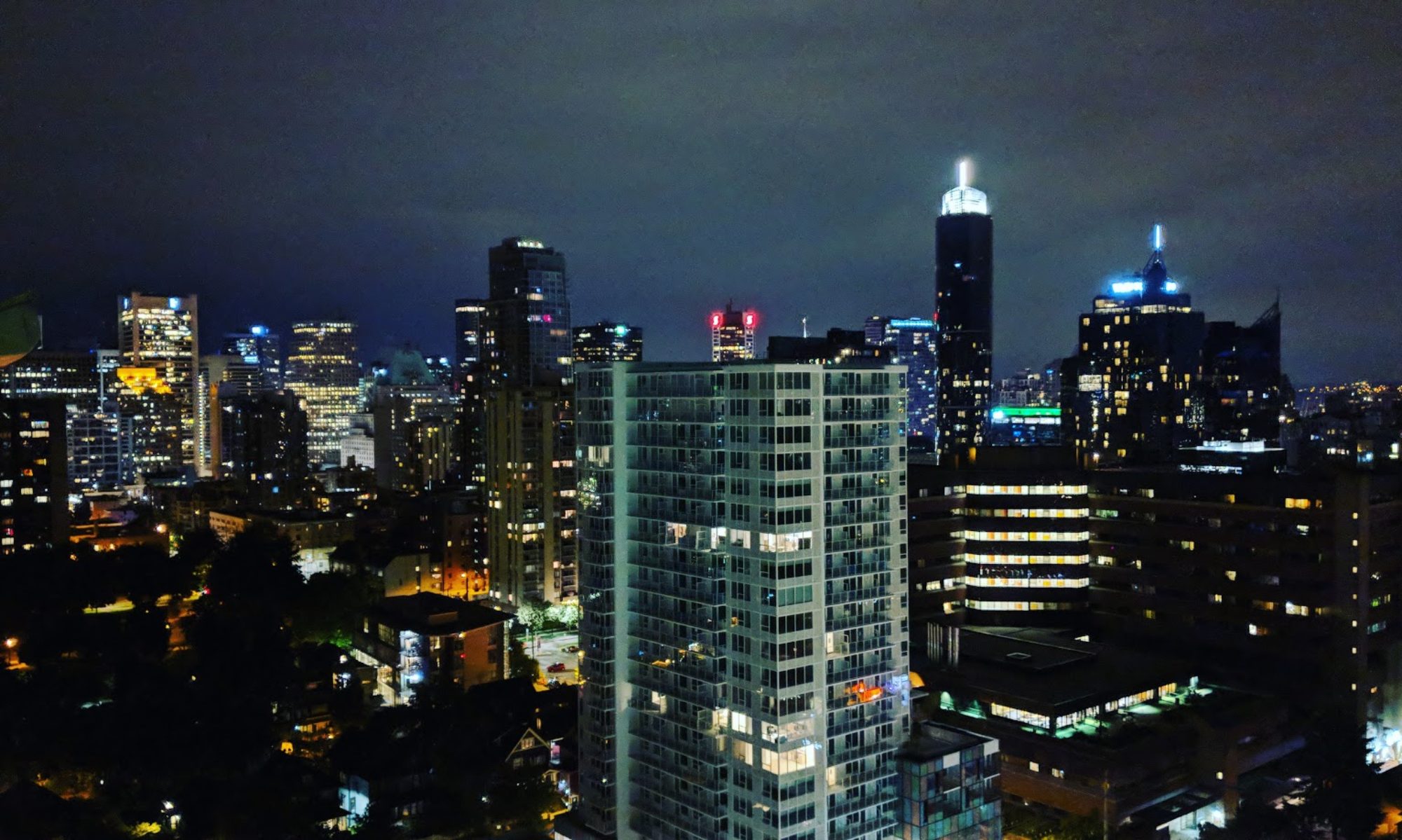 I’m no apologist for Alan Moore, but it seems like more than anything Alan Moore just wants to be left alone to pursue his other interests, and has largely retired from the comics industry (if not from the medium). An industry that has cost him money, friends, and a good night’s sleep, I might add. Good for him. It’d be nice if people left him to do that, rather than scaring up a new “Fuck you,” interview every six months. It doesn’t do anyone any good to put a great man into a bad mood and then capture it on tape, save for the bean-counters at Wired and Bleeding Cool, of course.
I’m no apologist for Alan Moore, but it seems like more than anything Alan Moore just wants to be left alone to pursue his other interests, and has largely retired from the comics industry (if not from the medium). An industry that has cost him money, friends, and a good night’s sleep, I might add. Good for him. It’d be nice if people left him to do that, rather than scaring up a new “Fuck you,” interview every six months. It doesn’t do anyone any good to put a great man into a bad mood and then capture it on tape, save for the bean-counters at Wired and Bleeding Cool, of course.
The main thing I think about this is that Tom Spurgeon, as usual, has the best take on the whole thing.
The other thing I think about this is: Can you imagine if Neil Gaiman actually gave interviews to the comics press, and let them know exactly where the bodies are buried? The masses would turn on him in a second.
– Chris


Just so you know, I’ve never run an interview with Alan on LITG or on BC that I instigated.
Yeah, I think you (and Spurgeon; thanks for the link) pretty much summed it up.
Moore seems tetchy, in this one, to an extent that seems new to me, and I like to hope that if I reach his age I’ll be more mellow. (Though in reality I’ll probably be far worse.)
Be that as it may, why can’t people just stop poking the man with sticks?
Alan is one of those rarities in comics as a medium, the legitimate living legend who isn’t the least bit afraid to piss on the ashes of burned bridges. Alan has nothing to prove, but he has axes to grind, and the kind of personal injustices he’s been dealt are the kind of thing that can make a man go public with his grievances just to get them out there. When a company has repeatedly treated you like DC’s treated Alan, it’s pretty natural to feel not great about anyone else continuing to work for them. He does get flippant. Spurgeon’s comment is apt: Get a guy all irritated and write down what he says and he’s not going to come off sounding like a well-balanced person.
Naturally, Alan also doesn’t need any of us to defend him. His work speaks for itself, and (as he’s said himself) they can’t take that away from him (or us) no matter what they do. To me personally, the work is all that matters. And the work is unparalleled.
Alan Moore should be allowed to be alone. He’s more than earned his rest and the right to stay out of the spotlight. But it’s like people want him to be some kind of elder statesman and they are then shocked when he refuses to play his role.
Unfortunately whenever he’s interviewed, it’s just bitterness and derision towards the industry. And it’s because the discussion always turns to an old relationship that went horribly, horribly wrong and now refuses to go away. It must be what Jon Voight feels like when he’s asked about his daughter. Or what Jennifer Aniston must think during her interviews whenever Jon Voight’s daughter is mentioned.
So, it’s like Angelina Jolie was the star of Watchmen and V for Vendetta. And he’s angry because it’s as if all his friends chose to go with the money and side with Ms. Jolie.
(Oh, and is it just me or does that photo look like Elvis Costello during his “Mighty Like a Rose” period. Y’know, The Other Side of Summer?)
I’m not taking sides because that’s useless but I do think Tom Spurgeon’s piece is well written and well thought-out and it’s a welcome antidote to the vitriolic Moore-bashing happening on the Bleeding Cool comment section. Whatever your take on the situation, the personal stabs being taken at Moore are baffling to me, one self-styled anonymous faux-pundit attempting to diagnose Alan with a psychological disorder despite never having met him. That’s the internet for you.
And I agree that the constant re-hashing of the situation via painful interview after painful interview is a bit excessive, given that we have a very clear picture of how the man himself feels. He seems genuinely bothered and I’d love to see him just move on and do good work in other fields without being forced to talk about a hurtful topic any more.
Sorry, Chris, but I think there’s a logical disconnect here. You seem to want to assign all the responsibility for Alan’s frankly embarrassing interviews to the interviewer: we’ve all said a few things we’ve regretted, but since Alan hits the same beats in every interview he gives, I’m pretty sure his is the voice being represented. And he certainly has the power to refuse an interview or refuse to answer a question. Hell, if there’s one thing other than writing that Alan Moore seems to be good at, it’s refusing.
There’s a reason that legitimate living legends who piss on bridges burned are rare. It’s because pissing on bridges burned is a really bad idea. It makes you look petty and it makes you actually petty. Don’t tell me how justified it is: YOU are the one responsible for YOUR behavior.
Moore seemed to understand this, once. One quote I remember from him which I actually tried to apply to my life was “When you find out you’ve been standing in shit, you don’t jump up and down on the shit to punish it, you walk away.”
I won’t speculate about his motives here. But if he wants to be left alone, then he needs to stop rewarding people for not leaving him alone.
“T”: I really don’t think there’s a logical disconnect at all: Alan Moore is giving bad interviews at the moment; it would be better for all of us, Alan included, if no one interviewed Alan. I’d say that’s perfectly reasonable logic.
As for the rest of your armchair quarterbacking, I don’t actually think it applies to this interview or this situation. Alan isn’t sitting around spontaneously sending out missives about past transgressions–he’s continuing to be transgressed against. It’s a considerably different situation than what you describe.
Or maybe they could just interview him about something else. Watchmen only represents a tiny amount of the work he has produced, all this stuff has been turned over a thousand times before, couldn’t somebody talk to him about something other than the industry?
I’d always be up for reading an interview that digs into his thinking behind From Hell, rather than more bored reflections on an industry he has no time for.
Can you imagine if Neil Gaiman actually gave interviews to the comics press, and let them know exactly where the bodies are buried
Was there any backlash or fan entitlement when he revealed that he didn’t do a new 20th anniversary Sandman story because DC was offering him crap money/terms?
Chris, my key point is that it takes two to tango. Whatever the faults of the interviewers, Alan needs to stop giving them what they’re looking for. I admit I hold Alan Moore to a higher standard than the average comic-book journalist. One is someone I grew up admiring and the other is not.
And likewise I hold him to a higher standard than the one I hold DC Comics to.
With regard to the rest of my armchair quarterbacking, I’m not sure I even understand what you’re talking about. Do you mean DC’s continuing to transgress against him with the Watchmen offer, which barely merited discussing once, or that Internet people are transgressing against him by unfair mischaracterization, or that the interviewers are transgressing against him, or his former friends, or what?
At any rate, I don’t see how it matters. You may find it unreasonable for me to wish that Alan would simply focus on the positive and what lies ahead in public, and vent his ongoing aggravations in private. But the alternative is for me to wish that the comics business and comics journalism would get a lot more mature in a few months. That seems like the much less likely scenario.
Clarification: I’d also be okay with Alan venting some NEW aggravations, or at least some that we haven’t heard about in a while. I’d be okay with a lot of alternatives to “I still hate the comics business, I don’t read any of the new product but I know it’s uniformly terrible, and I have the same attitude about film.”
The only reason I should care at all, really, is that I once considered him a role model. I see people around me becoming obsessed with past feuds and transgressions, being compromised by too much looking backward. And I’ve been tempted– oh, HOW I have been tempted– to fall into those obsessions myself. I’m no stranger to the irrational behavior of companies or of fellow artists.
But I feel such preoccupation should be avoided, that it leads to a premature death of the spirit. Knowing that Alan and I share similar passions and interests and ideas (note that I didn’t say “talents”), I still find his life instructive, but now, sadly, I feel it’s instructing me on what to avoid. I’d like to feel differently. But then he goes and grants another interview.